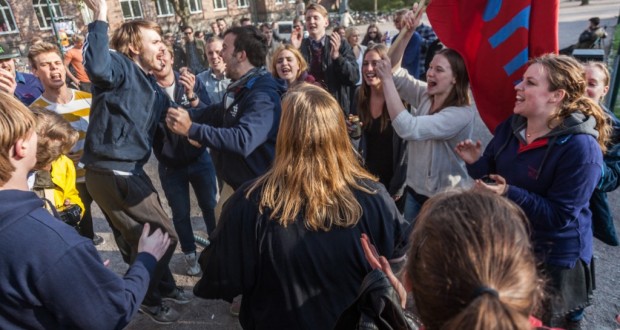According to the police, students at Lund University are no longer to be seen as part of a closed society. But with an agreement, nations will prevent that nation life is open to others than students.
The police have decided no longer to view Kuratorskollegiet, the joint body of nations, as a closed society in regards to the Public Order Act. This means that all nations now need a serving permit for the public.
The decision in turn opens up for more commercial activities at the nations. It will be possible for all nations to host activities for non-members in Kuratorskollegiet or Studentlund.
The latter is something that has spawned many speculations on social media, among other places. Many people have stated that the nations could now be opened for people outside of Lund University as well.
”The nations are there for the students”
But these are speculations that Kuratorskollegiet’s chairperson Fredrik Grotte rejects. He completely shuts the door on a nation life for people other than students, and holds that an agreement between the nations is on its way to regulate this.
”The nations are there for the students. Many people engage voluntarily and spend their spare time to meet up and be together”, he says.
The agreement is to be made between all parties within Kuratorskollegiet – which is all the nations in Lund, currently with the exception of Småland’s nation.
There is already an agreement between the members of Kuratorskollegiet today, stating that only students at Lund University can join a nation. The new agreement will also specify that only students of Lund University can visit the nations.
”Our goal is to keep the structures of student life as they are today. The activities of the nations can never prioritise the public before the students”, Fredrik Grotte says.
The police are putting on pressure
Work with the agreement is on its way, but it is dominated by stress. The police’s demand for all nations to have sent in their application for a dance permit before 31 March shows a lack of understanding, according to Fredrik Grotte.
”We are worried that there is no thought for consequences within the police. In organisations with a long history and many volunteers, it is quite difficult to change such a large thing in the middle of a semester”, he says, continuing:
”We want to finish this agreement as soon as possible, but if the police stick to their deadline, it will be difficult.”
Translation: Carl-William Ersgård






